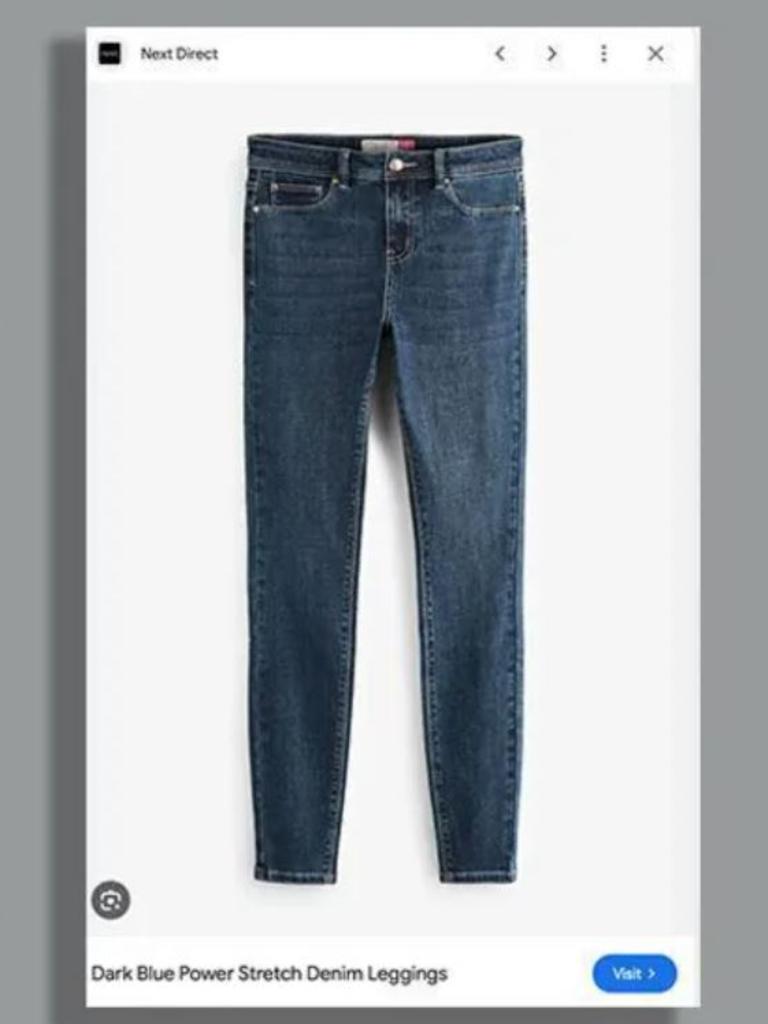‘Too thin’: Fashion brand’s advert banned
A UK watchdog has banned an ad after a single complaint was made about the model looking unhealthily thin.

An ad from UK fashion brand Next has been banned because the model’s pose, styling, and camera angle made it look like she was “unhealthily thin”.
In its review, initiated by a single complaint last September, the UK Advertising Standards Authority (ASA) compared the controversial image to other photos of the same model from the product listing.
It found that she didn’t appear unhealthily thin in those and so the now-banned image was “irresponsible” as the focus was on the model’s slim legs.

In response, Next has disagreed with the ASA’s ruling, arguing that while the model is slim, she has a “healthy and toned physique”.
The photo shows the model sitting on a wooden block with one leg bent and the other straight while wearing a pair of $55 denim leggings.
The retailer said the 175cm woman’s pose was specifically chosen to display the fit of the leggings on both straight and bent legs, according to BBC.
It also claimed that the image, which was shot nearly two years ago, was created with “a strong sense of responsibility”.
A spokesperson stated that a stylist and product image manager met the model in person and expressed no concerns about her health.
The ASA acknowledged that the model’s face “did not appear to be gaunt and her arms, while slim, did not display any protruding bones”.
However, because the photographic choices in the ad strongly emphasised the slimness of the model’s legs, it “considered that the ad gave the impression that the model was unhealthily thin”.


The retailer, which sells women’s, men’s and children’s fashion, maintained that it had not used any retouching to alter the model’s appearance.
However, it did admit to altering the appearance of the leggings by bringing them down further on the model’s ankles on both legs.
This was not found to have altered the model’s natural proportions.
As a result of the ruling, Next is no longer allowed to display the ad in its current form and has received a warning that its future ads must be “prepared responsibly” and “not portray models as being unhealthily thin”.
The ruling comes after there has been an increased focus on the effects of unrealistic advertising in the last decade.
The “body positivity” movement, which started around 2010, aims to promote a more diverse range of bodies in advertisements.
A fashion journalist told BBC that the movement is now “under threat” because the wider industry is veering back towards a “very thing model look”.






